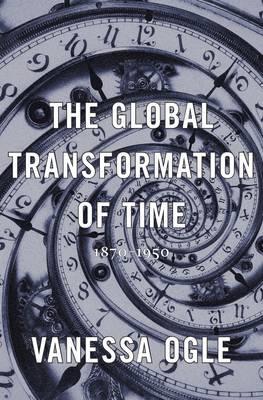Global Transformation of Time

Global Transformation of Time
Time played a foundational role in nineteenth-century globalization. Growing interconnectedness prompted contemporaries to reflect on the annihilation of space and distance and to develop a global consciousness. Time-historical, evolutionary, religious, social, and legal-provided a basis for comparing the world's nations and societies, and it established hierarchies that separated "advanced" from "backward" peoples in an age when such distinctions underwrote European imperialism.
Debates and disagreements on the varieties of time drew in a wide array of observers: German government officials, British social reformers, colonial administrators, Indian nationalists, Arab reformers, Muslim scholars, and League of Nations bureaucrats. Such exchanges often heightened national and regional disparities. The standardization of clock times therefore remained incomplete as late as the 1940s, and the sought-after unification of calendars never came to pass. The Global Transformation of Time reveals how globalization was less a relentlessly homogenizing force than a slow and uneven process of adoption and adaptation that often accentuated national differences.
PRP: 329.24 Lei
Acesta este Prețul Recomandat de Producător. Prețul de vânzare al produsului este afișat mai jos.
263.39Lei
263.39Lei
329.24 LeiLivrare in 2-4 saptamani
Descrierea produsului
Time played a foundational role in nineteenth-century globalization. Growing interconnectedness prompted contemporaries to reflect on the annihilation of space and distance and to develop a global consciousness. Time-historical, evolutionary, religious, social, and legal-provided a basis for comparing the world's nations and societies, and it established hierarchies that separated "advanced" from "backward" peoples in an age when such distinctions underwrote European imperialism.
Debates and disagreements on the varieties of time drew in a wide array of observers: German government officials, British social reformers, colonial administrators, Indian nationalists, Arab reformers, Muslim scholars, and League of Nations bureaucrats. Such exchanges often heightened national and regional disparities. The standardization of clock times therefore remained incomplete as late as the 1940s, and the sought-after unification of calendars never came to pass. The Global Transformation of Time reveals how globalization was less a relentlessly homogenizing force than a slow and uneven process of adoption and adaptation that often accentuated national differences.
Detaliile produsului









